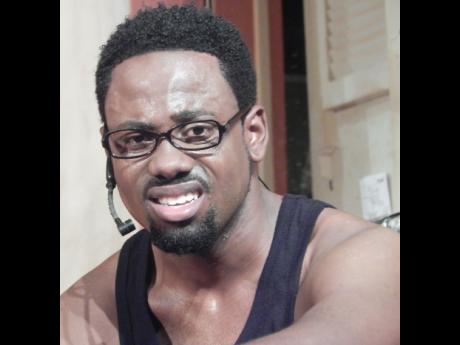Saving Alligator High better than Hurricane Honeymoon
Only once in a blue moon do we have two plays by the prolific Patrick Brown running simultaneously, figuratively speaking, the moon is blue this weekend with the award-winning Saving Alligator High playing at Centerstage, New Kingston, and Hurricane Honeymoon at The Little Theatre, Tom Redcam Avenue, St Andrew.
Those who can see both are in for laughter-filled evenings. But since time is limited - the newspapers state that the former production closes this Sunday and the latter, on Thursday - some may have to choose between the two.
Both plays are Jambiz productions and possess the high-quality look and sound (given by colourful costumes, detailed sets, mood-enhancing lighting, and bouncy music) traditionally associated with that company. But as Shakespeare says, "the play's the thing ... ."
Saving Alligator High is by far the better work and I'm not surprised that, in March, it got Actor Boy Awards for Best New Jamaican Play and Best Comedy. Hurricane Honeymoon, also a comedy, is not a new Jamaican play. It began life in the '80s as Friends, a two-hander, became Hurricane Lovers and got an additional character in the '90s, and has been further updated for its current iteration.
Actor Boy Awards
The Actor Boy Awards criteria used in the assessment of a new play are plot, clarity of intent, originality, context, character development, character relationships and conclusion, However, my comparison will focus on the major columns on which plays, generally speaking, are constructed. They are the story and the characters.
Saving Alligator High's story has an important subject, education in Jamaica. Just as Trevor Rhone did with School's Out, the subject is examined in the microcosm of not only a single school, but a single staffroom. The story's beginning suggests that the school's major problem is the teachers, who, except for a newcomer, are either incompetent or uninterested in teaching. The newcomer quickly establishes herself as a reformer.
Good stories must get complicated and we soon hear that the government has formally declared Alligator High a failing school and plans to shut it down. Things get worse when a teacher makes the mistake of boxing a particularly fresh boy who slapped her, and whose father is a feared area don.
suspenseful twists
Everyone thinks he'll come after the teacher seeking revenge. He does, but the story's suspenseful twists and turns make it end on a positive note, with the good rewarded and the wicked punished. We are left feeling that, if a basket case like Alligator High School can be reformed, there's hope for the island's creaking educational system, which the school represents.
That moral has national socio-economic resonance. We know that a country's success depends largely on the education of its citizens. Brown does not always get it right, and sometimes he forces funny lines into his characters' mouths. But in this play, the characters are funny to us unwittingly, not because they are trying to be funny. That makes them believable 90 per cent of the time.
An example of a slip-up is the playwright (or director) having don man, Shotty Shotty Sean, come onstage with a huge artificial lollipop. Not only is that out of character, but it momentarily drags the production from comedy into farce. You mix the two styles at your peril and Shakespeare points out that while it may make the unskilful groundlings laugh, it will make the judicious grieve.
The play's major characters are Mrs Sonya Lee (Sharee Elise), Jeff Jones (Christopher McFarlane when I saw the play, though for most of its run Glen Campbell played the role), Bev Beckford (Camille Davis), Tami Turnbull (Sakina Deer), Fox Bell (Courtney Wilson), and Shotty Shotty Sean (David Crossgill). A minor character whose hesitant, character-defining voice we hear over the PA system but who we don't see is the school's principal.
In total, Saving Alligator High has nine characters and the main ones have individual stories which get developed and eventually resolved. That's a lot of stories being told in two hours. The play's density makes it interesting.
one story
Hurricane Honeymoon is not dense. It has only three characters, and two of them are man and wife with only one story between them - will they stay together or separate? The third character exists only to support the couple's story, so essentially the play offers only one story.
That story is domestic, not a national one like Saving Alligator High, and there is nothing important at stake, not even for the characters themselves. Both, at different times, want out of the marriage or in.
It's the depth of concern of characters for their own problems that elicits an audience's empathy and here, neither character makes any sustained effort to save the union. In a 'cop out' (officially called a deus ex machina solution), the playwright has an act of God - the hurricane - solve the problem.
Fine acting (by Akeem Mignott as the bridegroom, Natalee Cole as the bride and Ricky Rowe as the hotel handyman, when I saw the play) and fast-paced directing by Trevor Nairne and the playwright keep the mood generally light. This is despite the couple's tiresome tracing match, which drags on for one-third of the playing time.
The excellence of Saving Alligator High shows that Brown has improved quite a bit since he wrote Hurricane Honeymoon.






